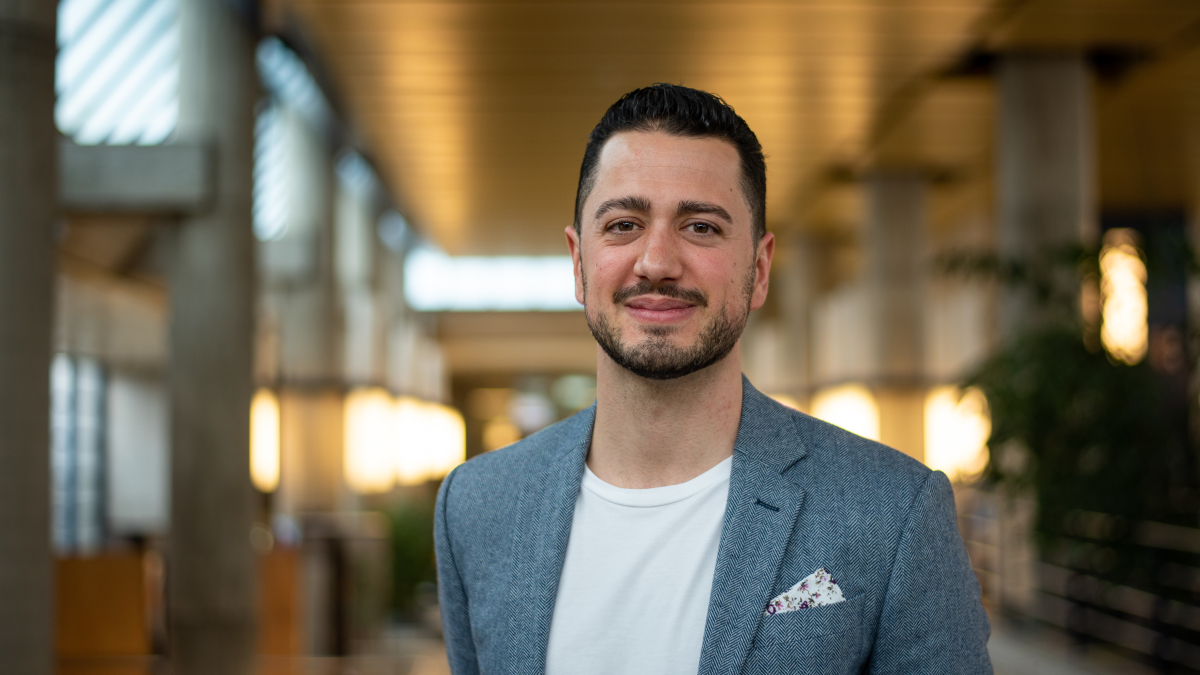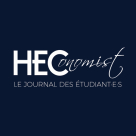05.06.2023
Special Report 95 > All editions
Interview – Quentin Gallea – The education in the present and in the future.
Manon Guiraud and Pasha Mammadov, writers for HEConomist, met with Quentin Gallea, lecturer and researcher at UNIL and EPFL, to learn about his vision of education, in the present and in the future.
Thank you very much for taking the time to answer our questions. To begin, could you introduce yourself in a few bullet points?
My name is Quentin Gallea. I am affiliated with E4S (Enterprise for Society) which brings together UNIL, EPFL and the IMD Business School. This group’s purpose is researching the energy transition and all issues related to the climate crisis. My main activities nowadays are teaching and research. I finished my PhD 2 years ago and now I am a researcher and lecturer at UNIL and EPFL. My main passion, my obsession even, is statistics and causality which I have taught to more than 10'000 students and researchers.
What do you think of the new SMT Master's degree, what does it reflect in your opinion of the future of teaching?
It addresses the world's need to answer ever more complex questions. The important thing is to educate people who will later specialize in several specific fields such as life cycle analysis or economics for example. We are committed to educating professionals who will be able to directly apply their learning in their future work. The program is designed to be very professionalizing!
How does your involvement in E4S impact your teaching?
I feel that my biggest role is with the first year HEC students. Indeed, the key to my teaching will be to link economic and environmental topics. There are fundamentals that we have to teach for the sake of learning, but as for me, I will always bring up a critique from an external angle.
The subject of the teaching is the same, but what are the methods to integrate these new axes in the teaching?
I always try to take concrete examples like the fertilizer crisis or recently the Black Friday. Indeed, what I have in mind when I teach is not the exam, but the intent that students get a global idea of how the world and the environment work. I also want to provide them with practical tools that they can apply in the professional world. For example, in the Master's courses, I have made the effort to teach Python, to the detriment of Stata, which I have known for years. Indeed, Python will be used much more easily in many companies.
In the end, you are like a philosopher who would like to help understand reality?
Causality does indeed have a philosophical aspect. We try to understand the causal chain and its limits. Statistical thinking is the key to dealing with misinformation. Moreover, a fascinating aspect is that many concepts to question causality can be taught without mathematics and are therefore accessible to a very large audience.
What do you think about the evaluation methods for Bachelor or Master exams?
Exams were very frustrating for me when I was a student, I felt like I was wasting my time. What I am proposing to the master students today is something that they can use later on. Indeed, I propose to them to answer causally an environmental question that interests them. They will be able to integrate it in their CVs later, or share it on social media for example.
What do you think about the organization of classes and exams during the pandemic?
I felt very sorry for the students who were affected by this situation and especially for those who were starting their Bachelor's degree. It's very difficult to evaluate remote learning in this case because there are a lot of things related to the context that need to be considered. It's not like these students decided to take a remote learning course, for example. In this case, it was a real opportunity for campus life that was missed. I think that the work of the professors and the university was incredible, they managed to switch over very quickly to a teaching method and tools that they were not familiar with.
The hybrid portion was interesting and it allows us to better evaluate the effectiveness of remote learning, and its major weaknesses. Indeed, the students had the choice between coming to class or watching the videos. This formula gave, I think, a feeling of freedom to many students who postponed their learning until the end of the semester, but it is obvious that this is impossible. As a professor, I really noticed this trend and it was reflected in the results.
My take on that and thinking back on my experience in college, as a student, but also in my work and in my research, human interaction really is the key. Humans are meant to meet up with each other in my opinion!
Is there anything in particular that you would like to see changed for the future of teaching within the HEC faculty?
Answering this question would be a bit difficult, the program is changing a lot, everything is being reviewed.
Do you think this is a good thing?
Yes, of course. I think that some things must evolve. From my point of view, what I have at heart and what I would want to convey if I were in these committees is really the idea of maximizing the usefulnesś for students who are going to go into the professional world. Indeed, most of them are not going to be PhDs, let alone professors, in 20 years. There is often the question of whether there is too much math at HEC. Math is useful because it is a cognitive exercise. It's like a swimmer going to the gym, even if it's not their main field; the gym is an activity that will allow you to improve your skills in any other sport. The same goes for mathematics, it helps develop cognitive skills that can be applied in many more areas. However, to answer the question, I think that building the courses in a more applied way and bringing to concrete cases could be a good initiative.
Do you think that the courses should be a little more practical and less theoretical? Which topics should be more important?
A little less theoretical and more practical, I think it's obvious and we already do it. For me, a very important topic is the environmental issue, which should take a big place even if I think it is already the case. What I remember is that when I was doing my Bachelor's degree, I don't think anyone talked to me about the environment, except maybe in a course on externalities, which was presented as an economic theory that exists. I remember finishing the first year and thinking that I found that shocking. But all that has already changed, positively, I think HEC has already been very successful in implementing environmental issues within its teaching.
You told us about Python earlier, how do you communicate the importance of coding and programming to your students?
I started coding when I was about ten years old, so I'm a big believer! Let's take the example of the master's degree in political economy, it can scare students, because even if the speed of placement on the job market is very fast, the fields can be very different. Python is used a lot in business, and what I teach in class, to the students, with this tool can be put into practice even right after the class in business. I show them very quickly with the data that not everything is black and white. No data set is perfectly complete or well adjusted, as in business, it is important to learn to deal with uncertainty.
What do you think about the dynamic between teacher and researcher?
This is a very important point. Obviously the first idea that comes to my mind is that a professor at the university is not only a teacher. There are some who are very good, of course, and who devote a lot of time to their teaching, but you have to realize that the life of a researcher is very intense. The term "publish or perish" says a lot. Often 90% of our time is devoted́ to research. It is then difficult to devote time for one's teaching and improve one's courses and skills. This is a problem that can be quite tricky. Indeed, students need a teacher who will have the time to explain his subject well and answer questions. It could be a good initiative on the part of HEC to hire more teachers who are not necessarily researchers.
Being an economist and statistician, you use programming every day, it is a major tool. What do you think about learning programming? What would be the best way to learn the Python language for example?
Indeed, programming is a very important part of my daily life. There are two ways to learn it, by courses and by practice. I think that both aspects are important when you want to master programming. Both methods are complementary. What I would advise is to watch tutorials on YouTube or to take a course on a platform like Coursera. There are really many that explain very clearly how to do it. However, the theoretical basis of Python that one could learn in a course is just as important to understand how to better implement one’s code. So I would say that a good theoretical base mixed with a lot of practice is the right way to learn programming.
We talked about communicating on research, do you share a lot on Linkedin? Why this channel? To reach which audience?
I love sharing knowledge and that's what characterizes humans. I've been given so much knowledge since I was little that I feel the need to share it too. What is extraordinary with social media is that I receive a lot of messages from people from developing countries. This way, I can communicate regularly with people from all over the world, who may never set foot in Switzerland or at the University of Lausanne. This is also why I started using the Python language. It's an open access tool, almost anyone who has a computer or a connection can watch and reproduce what I share. For me social networks have a very strong sharing power and LinkedIn is a fantastic tool. I'm on all the networks, but for me LinkedIn, because of its professional nature, is a much more enjoyable platform.
We would like to thank Quentin Gallea for answering our questions and for giving us some of his precious time!
Manon Guiraud and Pasha Mammadov


